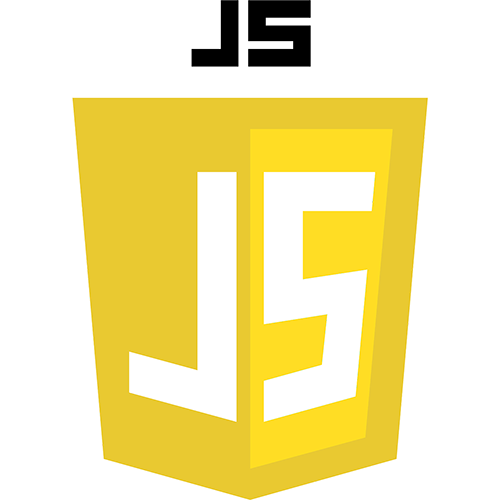FULL-STACK
AUTOMATION ENGINEER







Full-Stack
Automation Engineer
In today’s fast-paced world, businesses need to be able to move quickly and efficiently. This is where a Full-Stack Automation Engineer comes in. As a Full-Stack Automation Engineer, you will be responsible for automating the processes and workflows that keep a business running smoothly.
You will need to have a strong understanding of both back-end and front-end development, as well as a willingness to learn new technologies quickly. In addition, you will need to be able to work effectively in a team environment.
If you are looking for a challenging and rewarding career, then a career as a Full-Stack Automation Engineer may be right for you.
What is full stack automation engineer?
The term “full stack automation engineer” is a bit of a mouthful, but it essentially refers to a person who is responsible for automating the processes and workflows that keep a business running smoothly. This can include anything from setting up automated email responses to building out entire web applications. Full-stack automation engineers need to have a strong understanding of both back-end and front-end development, as well as a willingness to learn new technologies quickly. In addition, they need to be able to work effectively in a team environment.
100% Kostenlose
100% Online und Live
Mentoring und Karriere Coaching
COURSE
OVERVIEW
What is full stack QA automation?
Full stack QA automation is a process that automates the testing of an entire application from the user interface (UI) to the database. It is designed to provide End-to-End test coverage and ensure all aspects of the application are functioning correctly.
There are many benefits to becoming a full stack automation engineer. First and foremost, it is a challenging and rewarding career. As a full stack automation engineer, you will be constantly learning new technologies and pushing yourself to new levels. In addition, becoming a full stack automation engineer can lead to a variety of interesting and well-paying job opportunities. Full-stack automation engineers are in high demand, and they often have their choice of jobs.
In order to become an Automation Tester, one must first become a software tester. There are many ways to become a software tester, but the most common is to get a job as a software developer and then move into testing from there. Once you have experience in testing, you can then start to specialize in automating tests. There are many software testing tools available, and you will need to learn how to use them in order to automate your tests effectively.
If you want to become an Automation Tester, it is important that you have strong problem-solving skills. You will need to be able to debug software issues and identify potential problems before they cause problems for users. You will also need to be able to create effective test cases that cover all of the functionality of the software being tested. In addition, you will need to be able to understand and use different types of test automation tools.
There are many different job titles that you can have as an Automation Tester.
FAQ
Of course, with any challenging career, there are also some challenges that come along with it. As a full stack automation engineer, you will need to be able to learn new technologies quickly and effectively. You will also need to be able to work in a fast-paced and ever-changing environment. In addition, because full-stack automation engineers are in high demand, you may find yourself working long hours or on call more often than you would like. However, the rewards of becoming a full stack automation engineer far outweigh the challenges. If you are looking for a challenging and rewarding career, then a career as a full stack automation engineer may be right for you.
QA in software testing is the process of assuring the quality of a software product. This includes verifying the functionality of the software, as well as its compliance with industry standards. QA testing can be performed manually or through automation. Automated testing is often used to verify the functionality of a software product before it is released to customers. QA testing can also be used to verify the compliance of a software product with industry standards.
In order to ensure the quality of a software product, QA testing must be performed throughout the software development process. This includes the requirements gathering phase, the design phase, the implementation phase, and the testing phase. QA testing during each phase of the software development process can help to identify errors and potential problems early on, so that they can be corrected before the software is released to customers.
QA testing is an important part of the software development process, and it is essential for ensuring the quality of a software product. QA testing can be performed manually or through automation.
Agile engineering is a set of engineering practices based on the principles of the Agile Manifesto. It is intended to help software developers deliver high-quality, working software more efficiently and effectively.
Some of the key practices of agile engineering include:
- Continuous testing: Testing should be done continuously throughout the software development process. This helps to identify errors early on, so that they can be fixed before the software is released.
- Refactoring: This is the process of improving the code without changing its functionality. This can help to make the code more efficient and easier to maintain.
- Pair programming: This is where two developers work together on the same code. This can help to improve the quality of the code, as well as providing a check on each other’s work.
- Continuous integration: This is the practice of merging all changes to the code into a central repository frequently. This helps to avoid conflicts between different versions of the code, and makes it easier to track changes.
- Test-driven development: This is a methodology where tests are written before the code, so that they can be used to guide the development process. This helps to ensure that the code meets the requirements specified in the tests.
Do engineers use Agile?
Yes, agile engineering is a popular methodology used by many software developers. It is especially well suited to projects that are constantly changing and evolving, as it is very flexible and can adapt to changes quickly.
No, QA tester is not a hard job. However, like any job, it has its challenges. The key to being a successful QA tester is to be able to adapt to change and to be able to learn new things quickly.QA testers need to have strong problem-solving skills and be able to think critically. They also need to be able to communicate effectively with both developers and non-technical staff.
UPCOMING
BOOTCAMPS
2 September
2024
Full Stack Automation Engineer
26 August
2024
Full Stack Java Developer
26 August
2024
Cyber Security
26 August
2024
Data Science
26 August
2024
AWS & Devops Engineer
WEITERBILDUNGEN FÜR DIE DIGITALE ZUKUNFT
Software Development
Automation Engineer (QA)
Cloud Engineering
Data Science
Cyber Security

Full-Stack Java Developer
Java is a programming language and computing platform that enables developers to create and run applications on any device that has a Java runtime environment

Full-Stack Automation Engineer
Appium is an one of the most popular open-source mobile testing tools on the market.It provides open-source software automation tool and multi-platform feature.

Data Science
Get an opportunity to work on AI & Software projects in close cooperation with the Silicon Valley companies with Stanford University professors.

Cyber Security
Common tasks performed by security analysts include monitoring and analyzing network traffic, conducting proactive threat research, and investigating intrusion attempts.
COURSE
TIMETABLE
English Course
| Weekday | Central European Summer Time | |
|---|---|---|
| Theory Lessons | Practical Lessons | |
| Monday | 08:45 am - 12:00 am | 01:00 pm - 04:15 pm |
| Tuesday | ||
| Wednesday | ||
| Thursday | ||
| Friday | ||
| Saturday | Off | |
| Sunday | ||
Our graduates now have tech jobs all over the world






